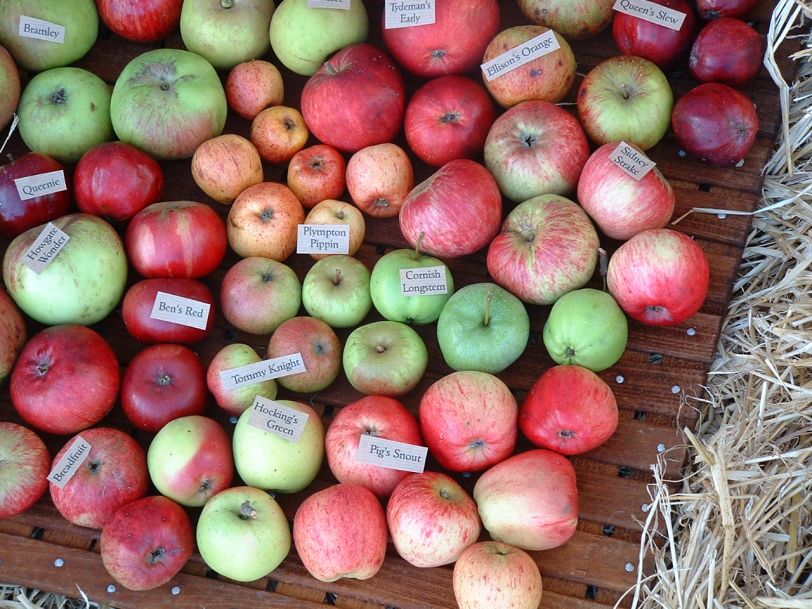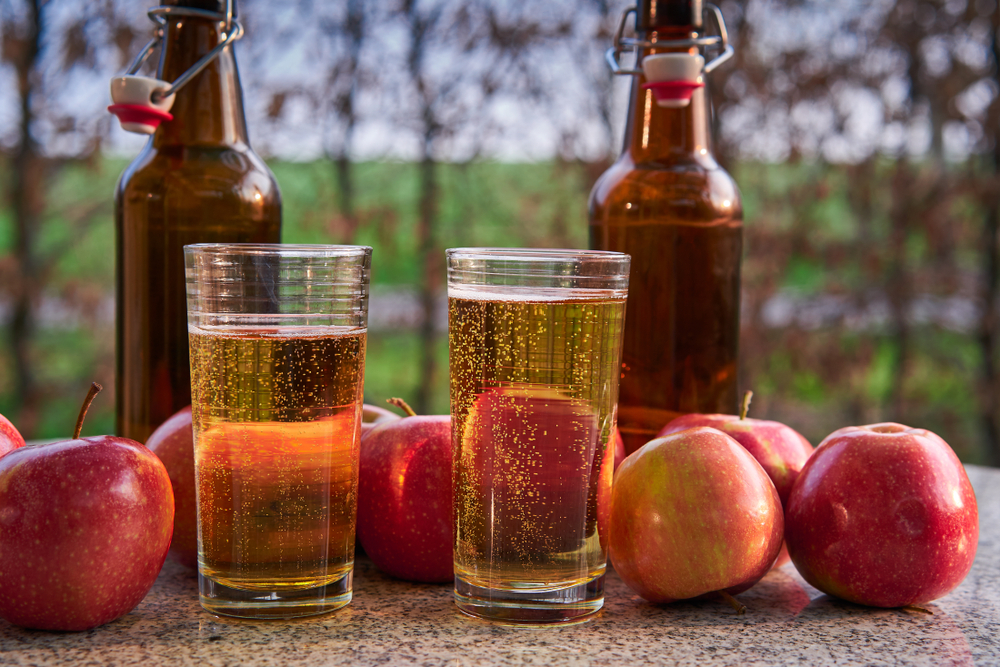Cornish cider has come a long way over the past couple of thousand years. Contrary to the popular image of drunk and incapable farmers passed out next to gallon bottles of scrumpy, for much of its history cider has played an important part in Cornish life and culture.
Its roots stretch back to the Romans who cultivated apple orchards as an alternative to wine production. Later the Normans brought with them new production techniques from France and by the 18th century cider had become so popular that many Cornish farm labourers received a fifth of their wages in drink!
Celebrate cider on Apple Day
Simply listing some of the many local varieties of apple evokes a real sense of Cornish language and culture, with names like Pigs Snout, Cornish Gillyflower, Spiced Pippin and Snell’s Glass Apple. After years of declining cider production, the past few decades has seen a great revival of Cornish orchards and farms.
In the early 1990s Apple Day was launched to celebrate this vanishing heritage, identifying 120 varieties and prompting the rediscovery of Red Rollo, an apple thought to have been lost. If you’d like a taste of some of these regional varieties, seek out Touchwood Cider, handmade on a small farm in Mithian where they have reinstated nearly 30 varieties of apple.
A pressing business
For hundreds of years Cornish cider was made using apple presses, with the fruit picked, crushed and then naturally fermented. Typically 36 apples are required for a gallon, a process which can take up to a year and a half for premium drinks such as the Cornwall Cider Co’s Vintage and Heritage ciders.
St Ives Cider takes this process directly to the orchard, using an eco-friendly approach which sees the apples placed directly into a trailer mounted press to reduce food miles. The juices are then bottled immediately to maintain freshness.

Get on a cyder tour
One of the biggest names in Cornish cider (or cyder as they prefer) is Healeys, whose excellent Rattler brand has been a huge success in recent years. They initially used a 16th century cider press on their farm near Truro and launched their first Cornish Gold Cider in 1990.
Today the farm is big business and open to the public with distillery tours, a glimpse of traditional production processes, even a tractor pulled train through their extensive orchards. You will of course get plenty of opportunities for tasting their award winning cyders along the way.
Join a cider social
You won’t struggle to find a good glass of Cornish cider during your visit – CAMRA lists hundreds of cider pubs listed on its website. Recent winners of their Cider Pub of the Year include the Front and the Stable, both in Falmouth.
Closer to home, The Shipwrights in Padstow serve a range of good Cornish ciders on tap. If you’re looking for a slightly different drinking experience, visit Haywood Farm in the Allen Valley near St. Mabyn where they’ve produced cider for hundreds of years using a large granite press.
As well as running tasting tours they also host events throughout the year with live music and activities for children. Particularly memorable is the Haywood Downhill event, in which drivers race wacky, ramshackle carts through winding lanes, hopefully not after too many glasses of their traditional cider.
